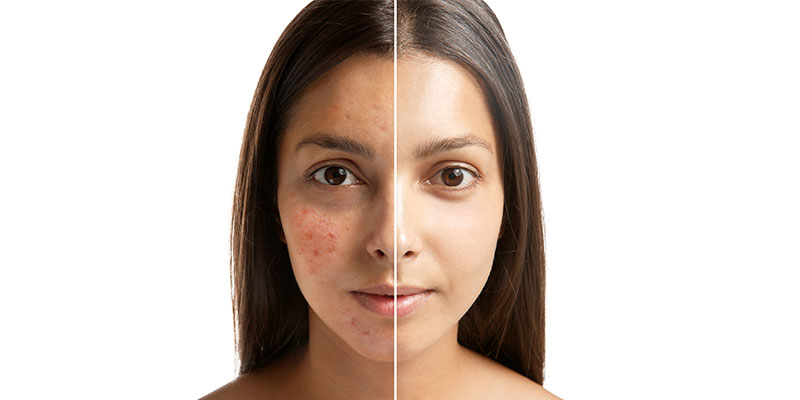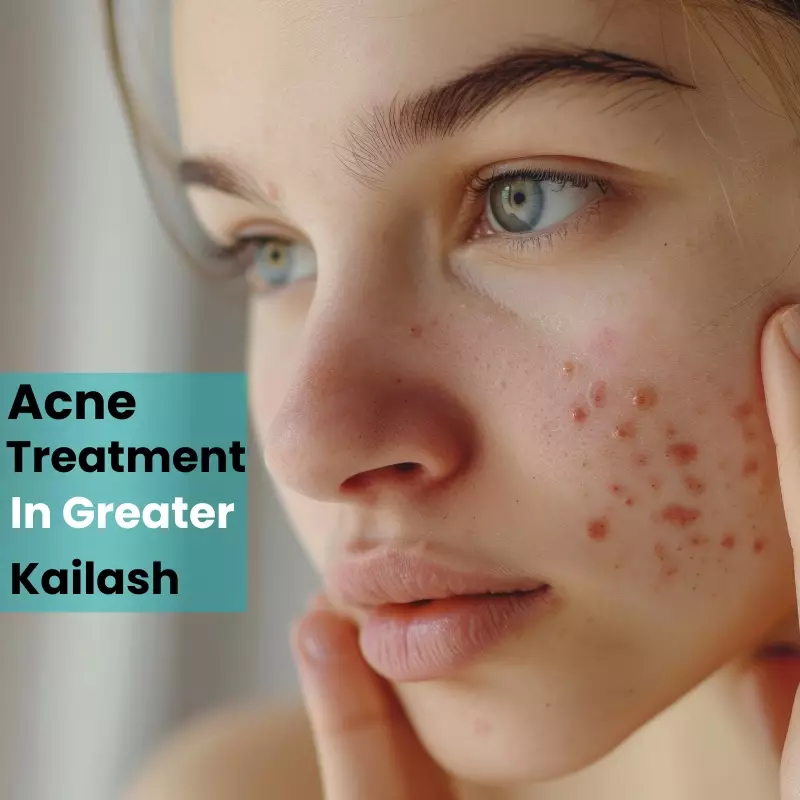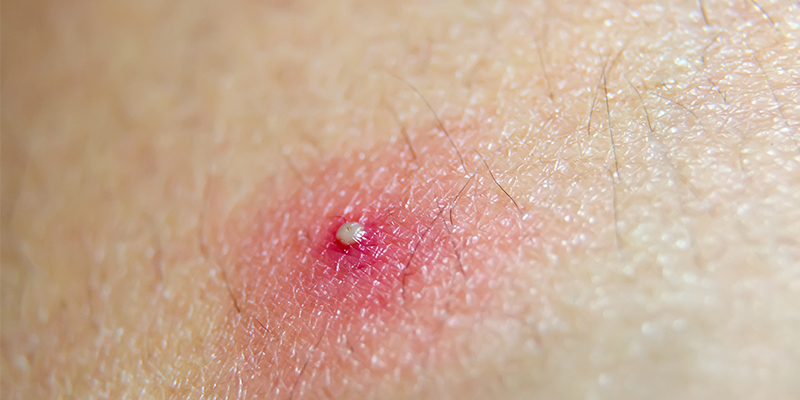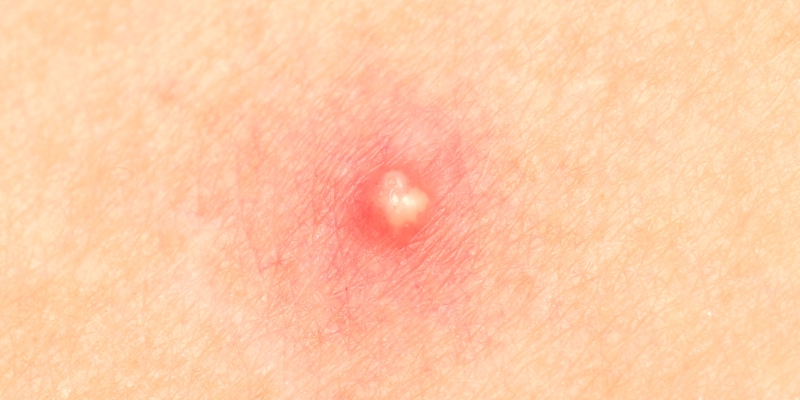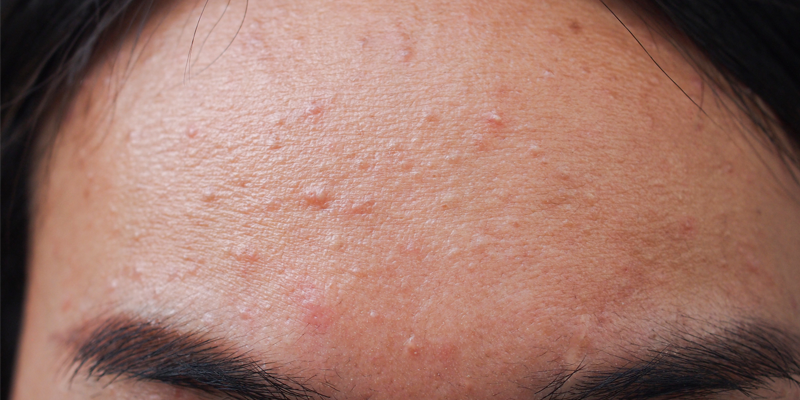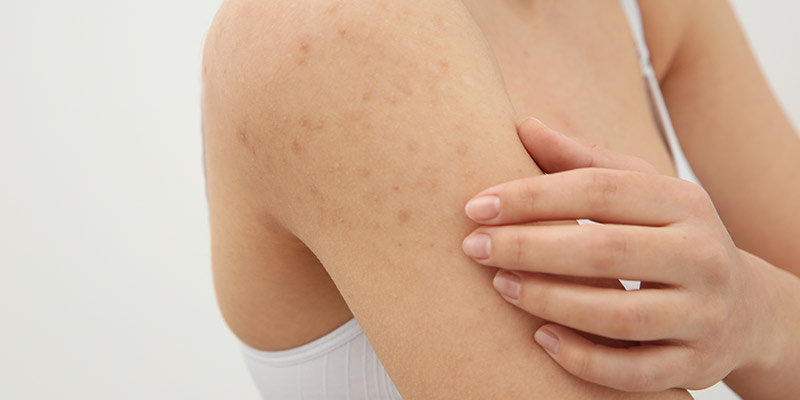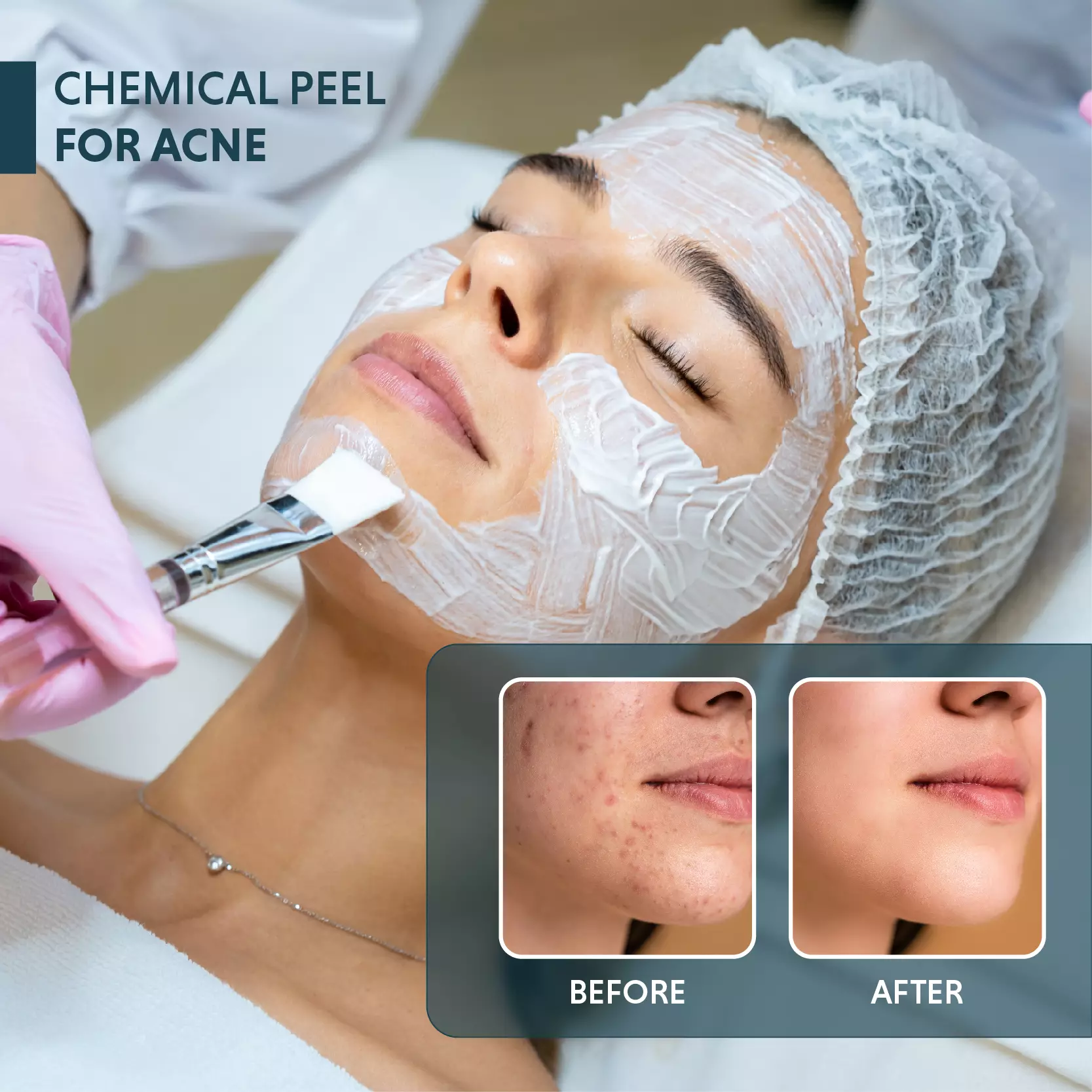What Is Nodular Acne – Causes, Treatments Options & Prevention Tips
Nodular acne is one of the most severe form of acne which causes large, inflamed and painful lesions known as acne nodule. This is a long-lasting condition and tends to penetrate deeper into the layers of the skin. Failure to seek timely treatment for this condition may lead to permanent acne scars.
What Is Nodulocystic Acne?
Nodulocystic acne or nodular acne is characterized by the presence of large and inflamed lesions and cysts. It can manifest itself as a small bump under the skin with the same tone and eventually turn red due to tissue inflammation around the area. The breakouts can also exhibit the presence of whiteheads and blackheads, but it should be noted that these growths penetrate deep into the layers of the skin, making them painful and extremely prone to scarring. If left unchecked, the acne could spread at an alarming rate causing more damage to the affected skin.
Due to the contamination by bacteria, when nodule acne starts to develop, the follicle structure deteriorates. This causes a chain reaction of the surrounding follicles being infected with debris. The result is a rather painful swelling due to the substructures being damaged. There is also a pus formation. However, due to the depth at which these nodules develop, whiteheads may not be visible on the surface.
Areas that are usually affected by nodule pimple are the face, neck, back, chest, and shoulders and can vary in the number of breakouts.
Must Read: How Do You Treat Nodulocystic Acne?
What Causes Nodular Acne?
- All acne is due to clogged pores and a build-up of oil and dead skin debris, which is an environment for acne-causing bacteria (Propionibacterium) to develop and break down the follicle structure, thus leading to acne breakouts.
- A hormonal imbalance, particularly an increase in androgen production, changes the density of the oil secreted by the sebaceous glands which make the clogging of pores more likely to be the cause of a nodular acne breakout.
- In certain cases, the onset of nodular acne can be caused by the side effects of medication (e.g. birth control pills) which create a change in the hormone balance as well.
- There is also a chance of having a case of severe nodular acne due to genetics that leans towards the condition. There are chances of you having issues with severe acne if your parents dealt with the same.
- Consuming a high level of oily and greasy food with a drop in water consumption leads to uneven skin tone and texture which, in turn, promotes the spread of acne.
- The weather or exposure to environmental factors like hot and humid climates tend to be ideal for bacterial growth on the skin. Without proper skin care (cleansing and exfoliation), bacteria can clog the follicles and cause a nodular acne breakout.
How Does An Acne Nodule Look Like?
Acne that appears in large areas at a time and is painful is likely to be attributed to a nodular acne breakout. Other symptoms include redness, inflammation, and a tough and turgid texture.
How Long Does Nodules Last?
Severe nodular breakouts will remain for weeks and months as opposed to mild acne which disappears in a matter of days.
Does Nodular Acne Leave Scars?
When the nodular acne is left unchecked, scarring is a by-product of the increased inflammation which tends to stay for months or years depending on the severity. If someone with nodular acne tries to pick or pop the nodule, a scab and an enlarged pore can form.
How Acne Is Diagnosed?
A dermatologist will require information pertaining to how long the breakout has been present, the level of sensitivity of the acne (mainly pain), and what methods have been attempted, if any, to treat the same. Questions pertaining to change in medications and family history may also be asked to help isolate the cause.
Nodular Acne Vs Cystic Acne
The terms tend to be used interchangeably to describe a severe acne breakout. However, on inspection, nodular acne breakouts are hard and firm lumps under the skin, and cystic acne is deep and fluid-filled soft growths. Cystic acne is the most severe case of acne breakout, but it is generally accepted that it is a result of severely inflamed nodules.
Nodular Acne Treatment Options
It should be noted that over-the-counter medications (including face peels) are useful only for surface level treatments and cannot tackle severe nodular acne due to the presence of the issue in the deeper layers of the dermis. The following treatments are usually utilized to treat nodular acne –
- Topical Acne Medications – These topical medications are prescription-strength which tend to be in higher concentrations than their pharmacy and drugstore counterparts. Topical medication is effective as the first line of treatment in cases where there are only a few nodules.
- Oral Antibiotics – With recurring cases of nodular acne, or simply when the spread is over a very large area, oral antibiotics help in stemming the growth of Propionibacterium. Eventually, the pores open up, and the inflammation also reduces from the effect of the medication.
- Other Medications – Due to the body’s ability to develop a resistance to antibiotic treatment, oral antibiotic cycles last only up to ten days. Due to the long-term nature of nodular acne, medication like isotretinoin is prescribed. Isotretinoin is a prescription-strength medication distilled from vitamin A, which is used to treat all forms of acne but has a long effect cycle (i.e. – results can only be seen in a few months). It works well for nodular acne treatment. Women, at times, can also be prescribed birth control pills to regulate their hormone cycle that can help remedy the condition.
- Doctor’s Office Procedures – The aim of these procedures is to reduce bacteria contamination and tackle the inflammation as best as possible. In conjunction with antibiotics and other medication, procedures like acne draining, acne extraction, chemical peels, laser therapy, blue light therapy, and direct medicine injections can help treat nodular acne. Laser and light therapy have the added benefit of improving pigmentation issues caused by severe acne.
How To Prevent Nodular Acne?
- Follow a proper skin care routine
- Wash the affected area twice a day
- Apply a non-caustic and non-abrasive cleanser on your face
- Don’t scrub the affected area of the skin
- Keep your hair clean
- Apply sunscreen regularly
- Don’t pop the pimples
- Avoid touching your face
When To See Your Dermatologist?
The sooner, the better. Nodular acne can spread extremely fast if left unchecked and can cause heavy skin damage leading to blemishes, spots, and scars. A good meter to follow is that if the areas are painful, meet with your dermatologist. A quick diagnosis leads to quick treatment which can contain or at the very least put you on the road to recovery for nodular acne.
On the scale of severity, nodular acne is a difficult form of acne to treat. At any sign of pain or inflammation in acne-prone areas, contact your dermatologist. Being complacent can lead to long-term scarring and a host of other issues. Being proactive, can save you from an uncomfortable series of symptoms and keep your skin clear and blemish-free.




